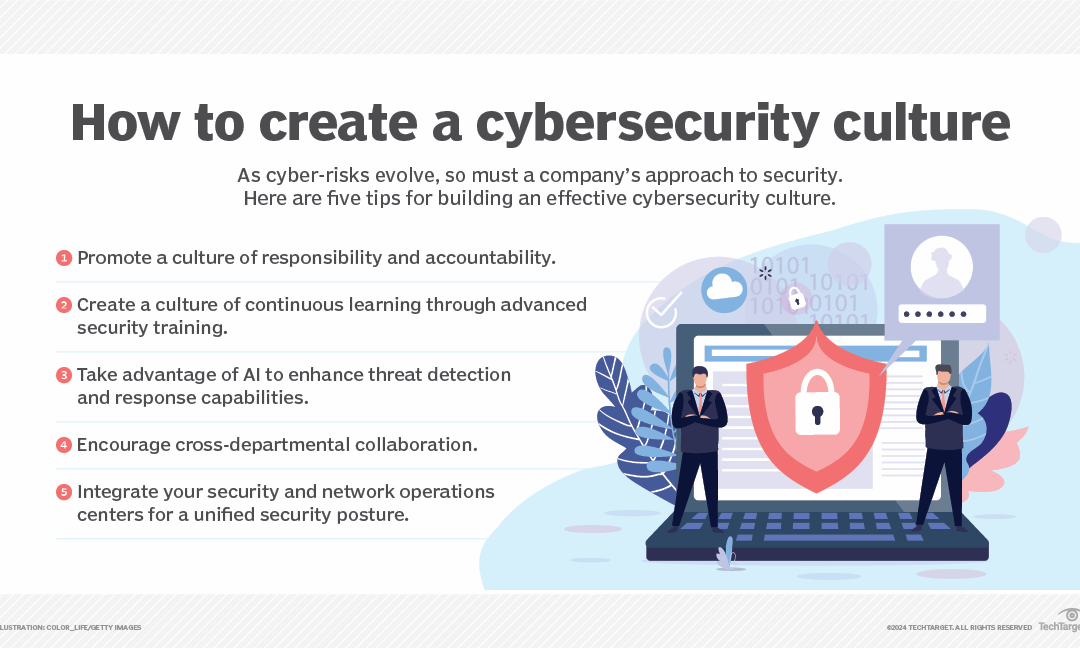Is your business Data still storing its server in the backroom of your office?If so, you're not alone—and you're also not fully...


Is your business Data still storing its server in the backroom of your office?If so, you're not alone—and you're also not fully...

Worried about being a target for phishing attacks? Protect your company today!

Understand the Holiday Season Cyber Threats The holiday season is a time for joy, celebration, and generosity. However, this...

Cybercriminals steal credit card? Cybercriminals have various methods at their disposal to hack and exploit credit card...

This in-depth cybersecurity planning guide provides information and advice to help organizations develop a successful strategy...
Companies today are increasingly Adopting managed IT services to enhance operations, efficiency, and cybersecurity. These services outsource specific tasks to expert third-party providers, allowing businesses to focus on their main strengths. They cover IT, cybersecurity, cloud management, and communication, leveraging the expertise and technology of managed service providers (MSPs). We’ll explore six key managed services that are transforming business operations, keeping them competitive and secure in the digital age.
Managed IT is central to managed services, covering a wide range of technology management. It’s vital for businesses dependent on IT but lacking a large in-house team. MSPs keep a company’s IT infrastructure operational, managing networks, servers, and data. By mitigating downtime and optimizing system performance, Managed IT Services enable businesses to maintain seamless operations.
As cyber threats grow more sophisticated, managed cybersecurity services have become indispensable. These services provide businesses with comprehensive security solutions, including continuous monitoring, threat detection, and incident response. Managed cybersecurity providers utilize advanced technologies and methodologies to protect businesses from a myriad of cyber threats, ensuring data integrity and compliance with relevant regulations. By outsourcing cybersecurity, companies can benefit from high-level protection without the need for extensive in-house security expertise.
Cloud computing has revolutionized how businesses store data and deploy applications. Managed Cloud Services offer businesses the expertise needed to navigate the complexities of cloud environments, including public, private, and hybrid clouds. These services cover cloud infrastructure management, application migration, system integration, and ongoing support. By leveraging Managed Cloud Services, businesses can optimize their cloud operations for scalability, reliability, and cost-efficiency, all while benefiting from the latest cloud innovations.
Effective communication is vital in today’s global business scene. Managed Communication Services offer solutions for voice, video, and data sharing to boost collaboration and connectivity. This includes VoIP, unified communications, and tools that enable smooth team interaction, regardless of location. These services streamline communication, boosting productivity and connecting the workforce more closely.
SaaS is now a go-to for business apps like email, CRM, and ERP systems. Managed SaaS goes further, handling app hosting, deployment, and updates. This gives businesses access to the latest features without the hassle of infrastructure management, enhancing efficiency and lightening IT loads.
Lastly, Managed Support Services act as an extension of a company’s own IT department, providing expert assistance and technical support for a wide range of IT-related issues. This includes helpdesk services, end-user support, and on-site technical assistance. Managed Support Services ensure that businesses have access to timely, professional help whenever needed, enhancing overall operational efficiency and employee satisfaction.
In conclusion, managed services provide a comprehensive and multifaceted solution to the intricate challenges of contemporary business operations. By forming strategic partnerships with MSPs, companies can effectively leverage specialized expertise, cutting-edge technologies, and scalable solutions, thereby significantly enhancing their competitive edge in a digital-first world. Importantly, from Managed IT to Support Services, these six critical types of managed services play a pivotal role in assisting businesses to adeptly navigate the complexities of the digital landscape. Consequently, this ensures they remain agile, secure, and consistently ahead of the curve. Furthermore, as the digital landscape persistently evolves, the significance and role of managed services are set to expand, underscoring their status as an indispensable consideration for businesses that are not only aiming for growth but are also focused on achieving long-term sustainability in the rapidly changing digital age.
In today's rapidly evolving digital landscape, businesses face an unprecedented challenge: maximizing their IT team's...
Is your business Data still storing its server in the backroom of your office?If so, you're not alone—and you're also...
Worried about being a target for phishing attacks? Protect your company today!